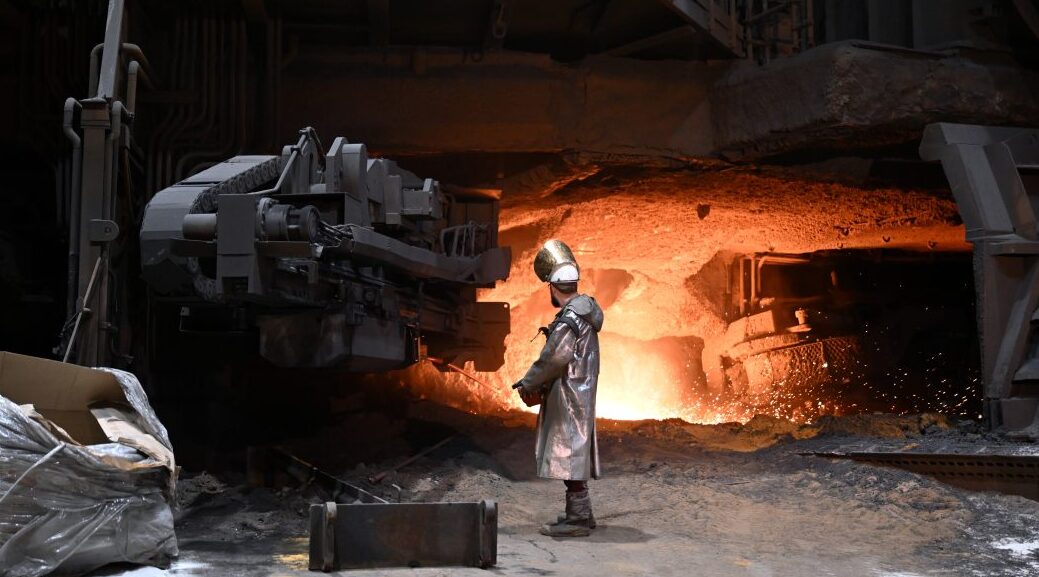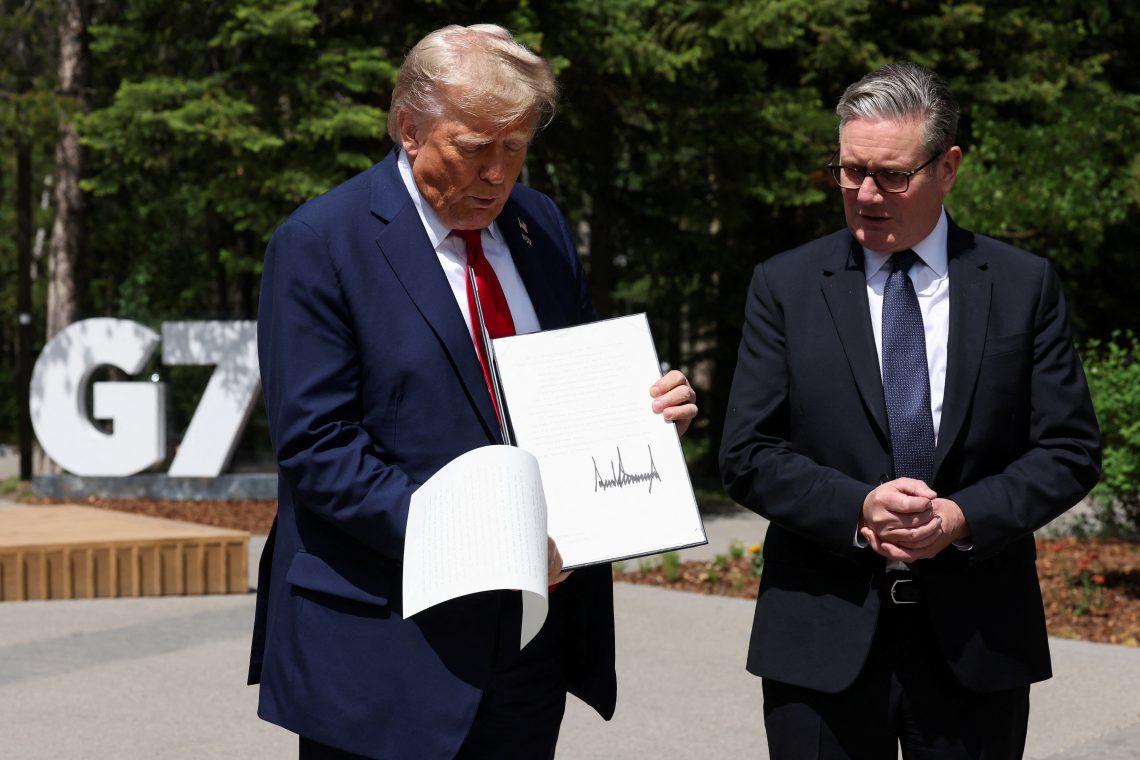EU investment screening may hasten economic protectionism
Most advanced economies, including those of the European Union, used to welcome foreign direct investment (FDI) with open arms, with few questions asked. Not anymore: From the late 2010s onward, these countries started to adopt inward investment screening mechanisms for foreign transactions, and the pace of adoption has increased markedly in recent years. Since 2018, over half of the 38 countries of the Organisation for Economic Co-operation and Development (OECD), a multilateral organization serving to boost global trade, have introduced cross- or multi-sectoral investment screening mechanisms. A decade earlier, less than a third of them had done so.
Security worries are behind this trend. Generally, the screening measures empower national authorities to review, and potentially condition or prohibit, transactions that may threaten domestic interests specifically related to national security and public order.
Alongside FDI scrutiny measures introduced individually by EU member states, in 2019, the EU itself launched a union-wide FDI screening framework. Its purpose was to ensure coordination and cooperation, information sharing and a minimum level of transparency regarding the screening of foreign transactions anywhere in the bloc.
However, while the regulation proposed factors for member states to consider when establishing FDI screening mechanisms to uphold national security or public order, it did not mandate the introduction of fixed FDI screening everywhere. The result is a patchwork of different national investment screening regimes across the bloc. Moreover, several states do not operate any form of FDI screening at all.
The Commission asserts that ‘risks to security and public order’ may arise when investments transfer control and decision-making powers to non-EU entities.
This lack of uniformity has lately been of concern to the European Commission, which has warned that foreign investors could take advantage of loopholes in the bloc’s FDI screening coverage. Moreover, after the Covid-19 pandemic and the full-scale Russian invasion of Ukraine, the rise of the significance and application of FDI screening as a tool of public policy led to extensive changes in the relevant laws of individual EU states. This, in turn, gave rise to an increase in the divergence of regulatory standards within the bloc.
EU tightens inward investment screening
To address these disparities, the Commission has proposed new FDI screening regulations as part of its “strategic autonomy” initiatives. The new law, expected to take effect in 2026, is intended to enhance the efficiency and coordination of FDI screening across multiple jurisdictions. It envisions a more comprehensive approach, including EU-wide post-closing screening regimes, allowing member-state authorities to review and potentially block investments for up to 15 months following the closure of FDI screening proceedings.
The scope of scrutiny is also set to broaden. For instance, acquisitions by EU-based entities will be subject to review if the EU acquirer is controlled by a foreign (non-EU) investor. The Commission asserts that, “risks to security and public order” may arise when investments hand control and decision-making powers to non-EU entities, whether directly or through EU-based subsidiaries under foreign control.
This marks a substantive change from the current regulation, which only applies to directly-held foreign investments. However, it remains less stringent than some member states’ existing domestic laws, which already require FDI screening for EU companies with non-controlling minority foreign shareholders.
All the same, member states will need to align their national legislation with the minimum screening standards in the proposed EU-wide regulation. And given current geopolitical instability, it is improbable that states with more rigorous FDI screening regulations will relax their existing national regimes to match the EU’s proposed changes.
Enhancing European scrutiny of greenfield investments
In a significant change of focus, the new EU regulations target FDI in greenfield ventures, where a foreign investor or a foreign investor’s subsidiary in the EU sets up new production facilities within the bloc. The new measures mandate that member states incorporate greenfield investments into their respective screening processes, particularly those affecting sectors crucial for security or public order, as outlined in the draft regulation.
This will particularly affect Chinese FDI into the EU, which has predominantly taken the form of greenfield investments. Two sectors, retail and manufacturing, constituted more than 60 percent of Chinese greenfield projects into the single market in 2022. And although Chinese greenfield FDI constituted only 3.9 percent of all such investments into the bloc, it represented 90 percent of the EU’s high technology greenfield FDI in 2022, and 94 percent in 2023.
Facts & figures
Four EU countries attract the bulk of Chinese investment in the bloc, with the Netherlands far outpacing even the next three biggest destinations: Luxembourg, Sweden and Germany.
The two largest Chinese greenfield projects in Europe in 2022 were both in electric vehicle (EV) battery manufacturing, with investment totaling 8.3 billion euros. A further three large-scale investments also involved EVs and batteries, amounting to an additional combined capital outlay of 3.1 billion euros.
Considering the substantial value of Chinese investments in high-tech sectors, along with the associated geopolitical concerns, the EU is likely to intensify scrutiny on Chinese investments compared to those from other regions. The new greenfield investment rules appear weighed toward focusing on Chinese sources. As noted by Ropes & Gray, a firm specializing in inward investment, Chinese investors “need to be very committed and know they are in for enhanced scrutiny when investing in sensitive sectors.”
Outbound investment screening as well?
In a bid to further bolster European economic security, the Commission is also considering measures to address potential risks associated with outbound investments. It is likely that both the Commission and German federal government will model Europe’s new outbound control regime on the one recently introduced by the United States, which targets certain key advanced technologies, such as semiconductors, artificial intelligence and quantum computing. It may also include measures to restrict certain overseas investments and mandate reporting on all others.
Still, it remains to be seen whether the EU will proactively screen outbound investment as the U.S. does. Implementing such a control mechanism at the EU level would add a complex layer of regulation, potentially increasing costs for EU companies engaged in international mergers and acquisitions.
Facts & figures
And while the EU’s FDI screening processes ostensibly apply universally, the political literature on the subject often frames these mechanisms as a reaction to increased Chinese investment in the single market. National security threats from Russia have similarly influenced the drive to tighten FDI rules.
Furthermore, in the wake of the Covid-19 pandemic, European governments have shown heightened resolve to prevent the sale of strategic domestic assets to foreign investors. In line with this trend and the recent tightening of inward FDI screening in the EU, international investors’ enthusiasm for what they previously considered to be one of the premier destinations for global capital, has been dampened.
A Commission report on FDI screening revealed the declining level of FDI into the EU contributed to a 140 billion-euro drop in global inward FDI flows in 2022, while non-EU FDI flows remained relatively stable.
This raises a critical question: Have the EU’s new FDI screening frameworks shifted from their intended role of safeguarding national security and public order to inadvertently fostering economic protectionism? As the EU treads this fine line, the balance between regulation and openness remains pivotal to its economic strategy. What, then, are the likely outcomes?
Scenarios
More likely: EU FDI screening increasingly promotes protectionism
The EU’s proposed FDI screening measures are part of a broader shift toward trade and investment protectionism, targeting lower-cost economies in the developing or post-developing world. This strategic pivot is especially pronounced with respect to the EU’s economic relations with China.
Brussel’s trade strategy with Beijing is driven by its pursuit of “strategic autonomy” against a backdrop of geopolitical flux.
The EU’s proposed FDI screening of greenfield investments, in particular, is expected to have a major impact on inward investments in solar, wind, EV and EV battery production, where the EU believes large-scale state subsidies from Beijing are helping Chinese companies out-compete European firms. In a controversial move, Brussels has already imposed tariffs between 17 percent to 37.6 percent on several Chinese EV makers following anti-subsidy investigations.
Under the newly introduced Foreign Subsidy Regulation, the Commission can investigate and penalize foreign businesses operating in the single market that benefit from third-country public funding. While not explicitly targeted, China (still considered by the UN to be a developing country) and other developing economies are likely to fall into the sights of this law.
Arguably the most controversial new measure is the Corporate Sustainability Due Diligence Directive, criticized by developing economies as protectionist. The directive mandates that large EU-based corporations oversee human rights and environmental standards along their international supply chains, making EU rules applicable to these corporations’ suppliers and business partners based outside the bloc. Other EU regulations with extraterritorial effects are already a source of tension.
In tandem with the new supply chain law, the EU has enacted new rules against products made with “forced labor,” specifically focusing on China’s western Xinjiang province, known for garment and solar panel production. The intersection of forced labor prohibitions and the supply chain legislation are expected to place high compliance burdens on producers from China and other developing economies attempting to access the single market in future.
This, accordingly, has led to claims that the true intent of the new laws is to erect protectionist barriers to prevent EU companies from being elbowed out of their domestic markets. The crafting of investment screening mechanisms, influenced by entrenched corporate-government networks, may thus actually prioritize protectionist goals over genuine security concerns.
Less likely: EU FDI screening balances protectionism and security
A report by FDI Intelligence, “The Rise of the EU’s Formal FDI Screening,” highlights a clear trend: While FDI into the EU from Western allies such as the U.S., the United Kingdom and Japan has increased since the imposition of more stringent inbound screening measures, inward investment from rivals like China and Russia has declined sharply.
Even so, while a large number of transactions are subject to scrutiny, only a limited number are actually blocked. This suggests that the EU’s FDI screening may be striking a balance between maintaining openness to investment and safeguarding national interests. Then again, the relatively low number of blocked deals could also point to the deterrent effect of the investment screening mechanisms themselves, which seem targeted more at investments that are genuine threats to security and public order rather than being overtly protectionist.
The evidence shows that most deterring effects indeed materialize in strategically sensitive sectors, while far fewer investments are deterred in non-sensitive sectors. And importantly, FDI screening is only one of many factors that could influence FDI inflows. Declining Chinese investment into the EU may be driven more by China’s own economic challenges and industrial policy agenda, including initiatives such as “Made in China 2025,” which seeks to attract more domestic investments into the Chinese economy to promote Beijing’s internal development. A gradual decline in Chinese outbound investment is also apparent in other regions of the world that have little or no FDI screening.
Overall, it could be argued that the EU’s new FDI screening has been sculpted to protect the bloc’s key economic sectors, which also happen to be vital to preserving the EU’s national security and public order. At the same time, the bloc remains broadly welcoming to inward investment, suggesting that fears of an underlying protectionist agenda may be overstated. If this scenario is the case, then the EU’s challenge lies in balancing protective measures with its need to remain a competitive and attractive destination for global capital.
Greater transparency in designing FDI screening mechanisms would thus benefit investors eyeing the European market and assist policymakers in achieving their declared aims of safeguarding national security and public order, rather than advancing veiled protectionist agendas.
This report was originally published here: https://www.gisreportsonline.com/r/eu-fdi-screening/
































